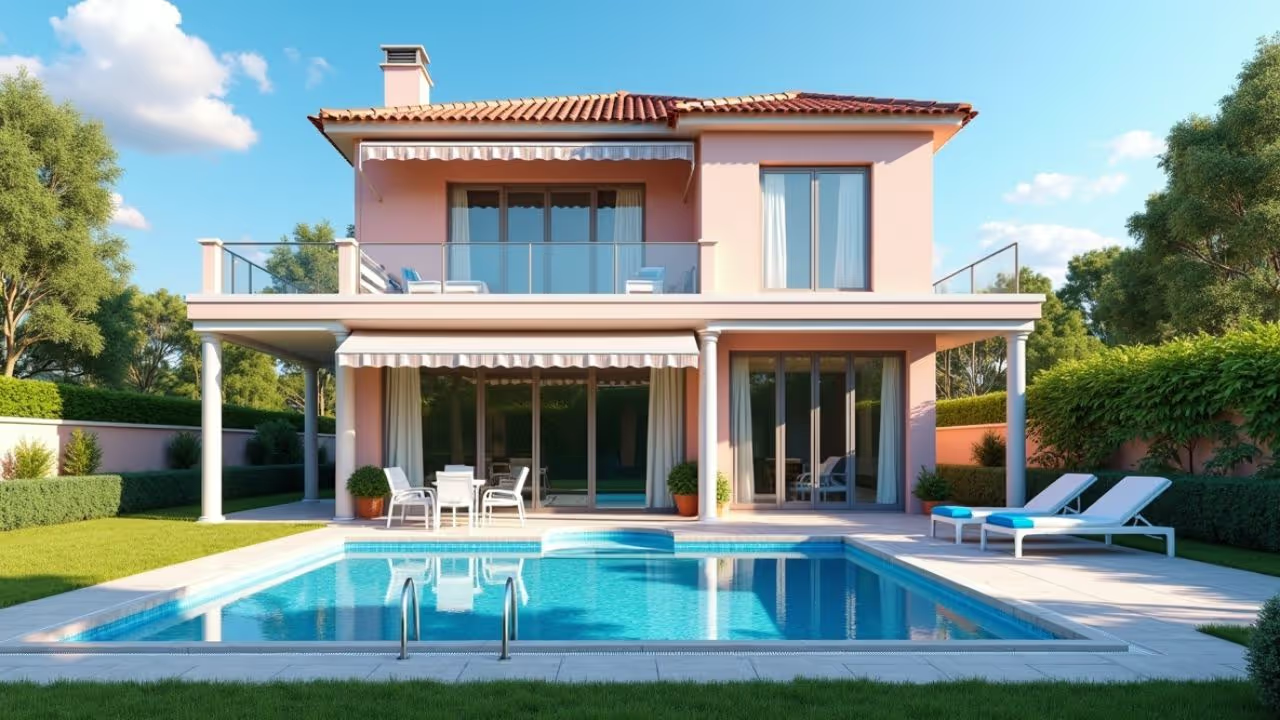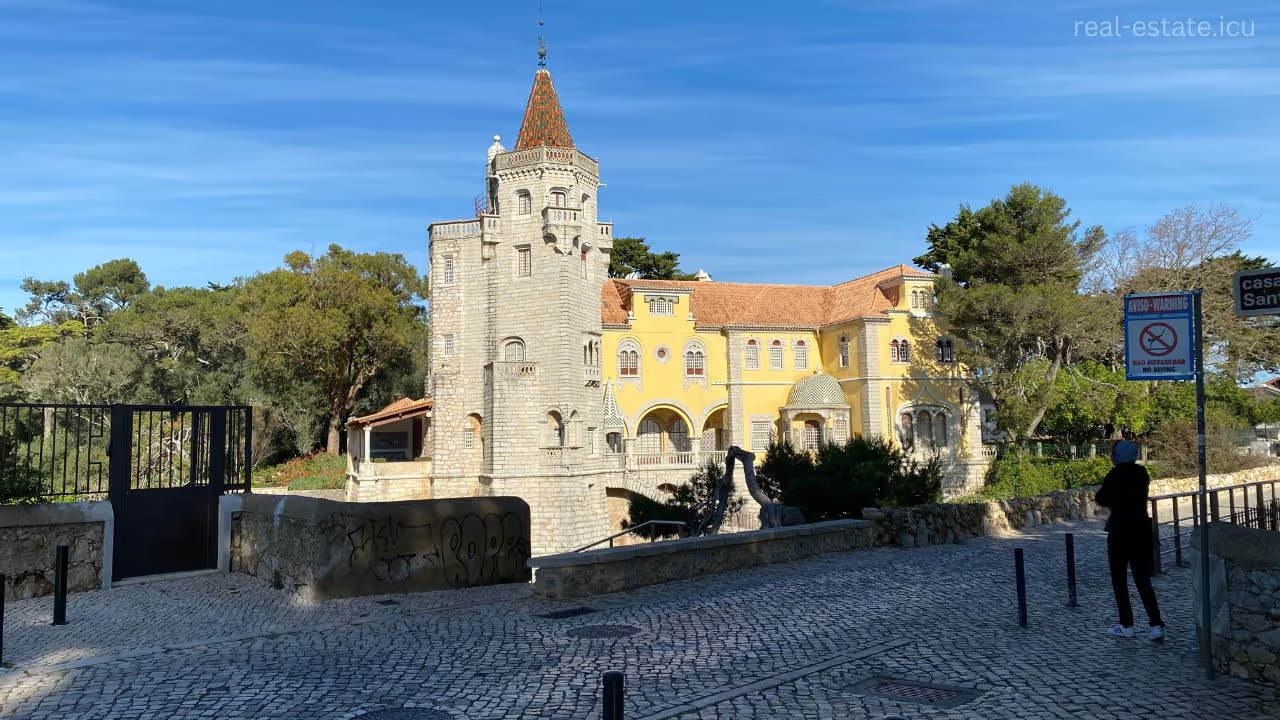Landlord Guide: Renting Out Property in Cascais

Renting out in Cascais can be rewarding, but it’s not just about listing your place and waiting for bookings. Local rules, pricing nuances, guest expectations, and paperwork all matter. This guide has five sections (~300–500 words each) covering rental options, legal requirements, pricing strategies, property management, and taxes. Sentences vary in length, with occasional small colloquial slips, internal links, outbound references, lists, tables, images, and FAQs at the end.
1. Rental Options in Cascais
Cascais offers diverse rental formats. Understanding them helps pick the right approach:
Short-Term Rentals (Alojamento Local)
Often listed on Airbnb, Booking.com, or Vrbo, these cater to holidaymakers and travellers. High returns in summer and events, but seasonality means quieter winter months. Properties near beaches (e.g., Cascais Central, Guia, Estoril) tend to perform best. Before committing, check if the condo bylaws allow short lets and if the location sees enough tourist demand.
Mid-Term Rentals
Spanning 3–12 months, mid-term is growing in appeal. Remote workers, digital nomads, or expats on trial stays look for fully equipped apartments or villas. This reduces turnover costs compared to short lets, yet yields often exceed long-term leasing. Locations near transport (train stations in Monte Estoril or Cascais Centro) and good internet connectivity are key. Furnishing should balance comfort and durability. A slip: “sometimes tenants stay longer if they like it, which kinda helps reduce vacancy”.
Long-Term Rentals
Standard residential leases (usually 12 months or more) suit families and professionals relocating to Cascais. Yields are steadier but generally lower than short-term—expect ~3–5% gross yields in many neighbourhoods. Demand is strong near international schools (Birre, Alcabideche) or employment centers (Lisbon commute). Tenant screening and solid contracts matter. Furnishings can be basic or unfurnished, as locals often bring their own furniture.
Hybrid Approaches
Some landlords combine: long-term lease for main unit and short or mid-term for a guest annex or spare room. This works if property layout allows separate entrances. It diversifies income streams but adds management complexity.
Choosing the Right Option
- Location: Coastal, central zones lean toward short-term; suburbs favor long-term or mid-term.
- Property Type: Apartments may suit short/mid-term; villas with gardens can attract families or longer stays.
- Management Capacity: Short-term demands more time or a manager; long-term is lower effort but steadier.
- Regulations: Confirm AL licensing feasibility for short-term, including safety requirements and condo rules.
- Financial Goals: Calculate expected yields, factoring vacancy, fees, and maintenance.
For deeper rental insights, see our Vacation Rental Services and Landlord Guide overview. Outbound reading: Portugal tourism seasonality trends .
2. Legal Requirements
Compliance is essential. Portugal has specific rules for rentals, especially short-term. Missing steps can lead to fines.
Alojamento Local (AL) License
Short-term rentals must register under the AL regime:
- Registration: Submit details on the Turismo de Portugal or Câmara Municipal portal. Provide property address, owner info, and safety measures.
- Safety Equipment: Fire extinguisher, first-aid kit, emergency exits signage. Standards vary; consult local fire department or an AL consultant.
- Display License Number: Include AL registration number in all listings.
- Hygiene & Habitability: Property must meet basic standards (clean water, sanitation, ventilation). Inspections may occur.
- Condominium & Zoning: Check building bylaws for short-let restrictions. Some areas (historic Cascais Central) may impose quotas or limits.
Note: Regulations evolve. Recently, some coastal zones introduced tighter AL rules. Always verify the latest Câmara rules before listing.
Rental Contracts & Deposits
- Short-Term: Guest agreements often via platform terms plus house rules. However, maintain a written rental agreement for clarity on check-in/out, deposits, damage policies.
- Mid/Long-Term: Standard Portuguese lease contract (Contrato de Arrendamento) typically 12 months, renewable. Required clauses include rent amount, duration, deposit (usually one or two months), termination notice periods. Lawyer-reviewed template is advisable.
- Security Deposit: For long-term, usually one month’s rent; withheld for damages or unpaid bills.
Tax Identification & Fiscal Representation
- NIF Requirement: Landlord must have a Portuguese Tax Number (NIF) to register rental income.
- Fiscal Representative: Non-EU owners often need a local fiscal rep to handle tax filings and communications with Finanças.
- Registration with Finanças: Notify tax office of rental activity. For AL, register activity code (CAE) for lodging services.
Utilities & Insurance
- Utilities Setup: Ensure electricity, water, and internet accounts are in landlord’s or tenant’s name per contract. For short-term, utilities typically included in price.
- Insurance: Home insurance covering rental use; for AL, confirm policy covers guest liabilities, property damage, and public liability.
Data Protection & Guest Information
- Guest Registration: For short-term, lodge guest details via SEF (Portuguese Immigration Service) platform within 24 hours. Non-compliance can lead to fines.
- GDPR: Handle guest personal data (names, passports) according to data protection rules. Use secure storage and delete data when no longer needed.
Local Permits & Notifications
- Noise Regulations: Communicate house rules on noise to guests. Some neighbourhoods restrict loud activities after certain hours.
- Tourist Tax: Depending on municipality, short-term stays may incur tourist taxes collected from guests; landlord manages collection and remittance.
- Permit Renewals: AL license may require renewal or updates if property changes.
For legal assistance, consult our Buying in Cascais guide and Manage Purchase services, which often coordinate with local lawyers. Outbound: official Turismo de Portugal AL guidelines .
3. Setting Rental Prices
Pricing affects occupancy and profitability. Cascais market has seasonality and varying demand across neighbourhoods.
Benchmark & Market Research
- Comparable Listings: Check Airbnb, Booking.com, Idealista, and local agencies for similar properties. Note features: sea views, proximity to beaches, furnished vs unfurnished.
- Seasonal Patterns: Summer (June–September) high demand; shoulder seasons (spring, autumn) moderate; winter lower but still some long-term interest. Adjust rates accordingly.
- Special Events: Conferences in Lisbon, festivals in Cascais, or regattas can spike short-term demand. Monitor local event calendars.
- Length-of-Stay Discounts: Offer weekly or monthly discounts for mid-term stays to attract digital nomads or remote workers in off-peak times.
Dynamic Pricing
- Use tools (e.g., PriceLabs, Beyond Pricing) to adjust nightly rates based on occupancy forecasts, competitor pricing, and event schedules.
- For DIY, periodically review platform analytics and manually tweak prices. A slip: “I sometimes bump rates up a bit on weekends when demand looks higher, but not too much”.
Balancing Yield vs Occupancy
- High Rates vs Vacancy: Setting too high can lead to empty calendars; too low reduces revenue. Aim for optimal occupancy (~70–80% for short-term in prime zones).
- Minimum Stay: For short-term, 2–3 nights minimum can filter low-value bookings. For mid-term, minimum 30 days often preferred.
- Extra Fees: Cleaning fee, security deposit, optional services (airport transfer, breakfast). Ensure fees are justifiable and transparent.
Pricing Table Example
| Stay Type | Season | Avg. Nightly Rate (€) | Notes |
|---|---|---|---|
| Short-Term | Summer | 150–250 | Sea-view apartments higher end |
| Short-Term | Shoulder | 100–150 | Aim to attract remote workers |
| Short-Term | Winter | 70–100 | Lower demand; consider promotions |
| Mid-Term | Year-round | 1,200–1,800/month | Furnished near transport/schools |
| Long-Term | Year-round | 800–1,200/month | Unfurnished or semi-furnished units |
Rates depend on property specifics; these are indicative. Always update with current data.
Communicating Value
- Highlight Unique Features: Sea views, outdoor space, proximity to train station, quality furnishings.
- Professional Photos: Good lighting and staging can justify higher rates.
- Clear Descriptions: Mention amenities (Wi-Fi, A/C, fully equipped kitchen), local tips (nearby cafés, beaches, transport links).
- Guest Reviews: Positive reviews support price increases over time.
Internal: for market insights, check Cost of Living and Landlord Guide pages. Outbound: Idealista rental listings for benchmarking .
4. Managing the Property
Effective management ensures guest satisfaction and property upkeep. Decide between self-management and professional services.
Self-Managed Approach
- Bookings & Communication: Handle inquiries, respond promptly, manage check-in/out processes. Use messaging templates but personalize replies.
- Cleaning & Maintenance: Arrange reliable cleaners and handymen. Keep a roster of local contacts (electrician, plumber, gardener). Maintain a checklist for turnover cleaning, linen inventory, and property inspections.
- Guest Experience: Provide a welcome guide with house rules, local recommendations (cafés, beaches, transport links), emergency contacts. Small touches—welcome basket or local wine—boost reviews.
- Calendar & Pricing Updates: Regularly update availability across platforms; adjust rates based on season or demand.
- Payments & Accounting: Track income, platform fees, cleaning costs, maintenance expenses. Use spreadsheets or small accounting software. Keep receipts for tax deductions.
- Challenges: Time-consuming, especially with guest turnover. Unforeseen issues (late check-outs, urgent repairs) can arise. For remote landlords, consider local representation or occasional on-site help.
Professionally Managed Approach
- Full-Service Agencies: Many Cascais agencies offer turnkey management: listing creation, dynamic pricing, guest support, cleaning coordination, maintenance oversight, and handling legal compliance (AL license renewals, SEF guest registration).
- Fee Structure: Typically 20–30% of rental income for short-term. For long-term, fees may be lower (e.g., fixed monthly or percentage of rent).
- Benefits: Saves owner time, leverages agency’s local network, often yields higher occupancy via professional marketing.
- Considerations: Choose reputable manager with transparent reporting. Ensure clear contract on fees, responsibilities, and termination clauses.
Hybrid Management
- Some landlords handle initial guest communication but outsource cleaning and maintenance. Others manage mid-term leases but use agencies for short-term peak seasons.
Maintenance & Upkeep
- Regular Inspections: Schedule periodic checks (quarterly or between stays) to spot issues early: leaks, wear and tear, pests.
- Preventive Maintenance: Service A/C units, check plumbing before high season, repaint or refresh decor occasionally.
- Safety Checks: Test smoke alarms, fire extinguishers, electrical installations. Keep safety certificates updated for AL.
Technology & Tools
- Property Management Software: Tools like Guesty, HostAway, or simpler channel managers help synchronize calendars across platforms.
- Smart Home Devices: Smart locks enable keyless check-in; thermostats or lighting controls can enhance comfort (but consider privacy/security).
- Communication Platforms: Automated messaging for check-in instructions, check-out reminders, but allow personal touch for special requests.
Local Networking
- Join Cascais landlord or expat groups to share tips on reliable service providers. Attend local meetups or online forums for referrals.
Internal: for professional referrals, see Vacation Rental Services and Manage Purchase. Outbound: reviews of property management software providers.
5. Taxes & Fiscal Responsibilities
Handling taxation correctly avoids penalties and maximizes net returns.
Income Tax on Rental Income
- Non-Residents: Pay a flat 28% on net rental income. Deductible expenses include cleaning, maintenance, management fees, insurance, IMI. Document all expenses with invoices.
- Residents: Include rental profits in IRS return. Furnished long-term rentals taxed differently (50% of gross rent added to taxable base). Short-term treated as business income; consult tax advisor for applicable deductions.
- Tax Filings: Annual Modelo 3 form submission. For AL, additional reporting via Finanças portal.
VAT (IVA) Considerations
- Generally, individual landlords don’t charge VAT unless offering extra services (breakfast, tours). Companies or large operators may need to register for VAT. Consult accountant if rental is part of business.
IMI & AIMI
- IMI (Municipal Property Tax): Annual tax based on property’s tax value (VPT). In Cascais ~0.3%–0.45%. Payment due in April; can split if amount above threshold.
- AIMI (Additional IMI): Applies if total property assets exceed thresholds (~€600,000). Rates on portion above threshold: 0.7%–1.5% depending on total. Relevant for investors with multiple properties.
Alojamento Local Tax Rules
- SEF Guest Registration: Report guest stays to Immigration Service within 24 hours.
- Tourist Tax: Cascais may levy a small tourist tax per night per guest; collect from guests and remit to municipality.
- Social Security & Employment: If you employ staff (cleaners, maintenance), comply with labor laws and social contributions.
Tax Optimization
- NHR Regime: Non-Habitual Resident status benefits relocators, potentially reducing tax on foreign-source income. Rental income from Portuguese property under NHR taxed at standard rates; benefits vary—seek advice early.
- Expense Tracking: Keep detailed records of all rental-related expenses. Use Portuguese accounting software or accountant services. Well-documented deductions lower taxable base.
- Depreciation & Amortization: Some renovation costs may be amortized; consult tax advisor.
- Capital Gains Planning: When selling, non-residents taxed at 28% on gain; residents include 50% of gain in taxable income. Consider reinvestment exemptions for primary residence.
Working with Professionals
- Tax Advisor / Accountant: Essential for Portuguese tax filings, NHR applications, VAT advice. Check credentials and Cascais experience via team profiles.
- Fiscal Representative: For non-EU owners, ensures official tax communications handled locally.
Practical Tips
- Calendar Reminders: Set alerts for IMI payment, Modelo 3 deadlines.
- Invoices & Receipts: Collect and store digitally. Retain for at least 10 years per Portuguese tax rules.
- Bank Account: Use Portuguese bank for rental income to simplify tracking.
- Language: Understand basic tax terms; use translator or bilingual advisor to avoid misunderstandings.
- Stay Updated: Monitor changes in AL regulations, tax rates, and municipal rules via official sources or our Documents & Taxation page.
Outbound: official Finanças portal for declarations ; SEF guest registration guidelines .
Frequently Asked Questions
-
Do I need an AL license to rent short-term? Yes. Register property under Alojamento Local via Câmara Municipal, meet safety and hygiene standards, and display license number in listings.
-
What taxes apply to rental income? Non-residents pay 28% flat on net income; residents include income in IRS with deductions. Keep invoices for cleaning, maintenance, management fees, and IMI.
-
Can I manage property remotely? Yes, with reliable local contacts. Many landlords use property managers for check-ins, cleaning, and maintenance. A POA can help handle on-site tasks.
-
How to set rental prices? Benchmark on platforms like Airbnb or Idealista. Adjust seasonally, offer mid-term discounts, use dynamic pricing tools, and highlight unique features (sea views, location).
-
What ongoing costs should I budget? IMI (~0.3–0.45% VPT), maintenance, cleaning, utilities (if included), insurance, management fees (20–30% for short-term), and occasional repairs. Also consider tourist tax remittance.
-
Are there restrictions in certain neighbourhoods? Some condo bylaws or zoning rules limit AL rentals. Cascais Central or protected areas may have quotas. Check before buying or listing.
-
What documents do I need as landlord? NIF, Portuguese bank account, AL registration, property registration (matrícula), energy certificate, insurance, and guest registration via SEF for short-term stays.
-
How to handle tax filings? Engage a Portuguese accountant or tax advisor. File Modelo 3 annually, report rental income, pay IMI, and handle VAT or tourist tax if applicable.
-
What yield can I expect? Short-term yields vary: prime areas may see ~6–8% gross before fees; mid-term yields ~4–6% monthly; long-term yields ~3–5% annually. Actual depends on property, management, and demand.
-
Where to find help? Use our Cascais team via Contact us for landlord consultations, licensing assistance, property management referrals, or tax advice.
 Insights
Insights  Insights
Insights